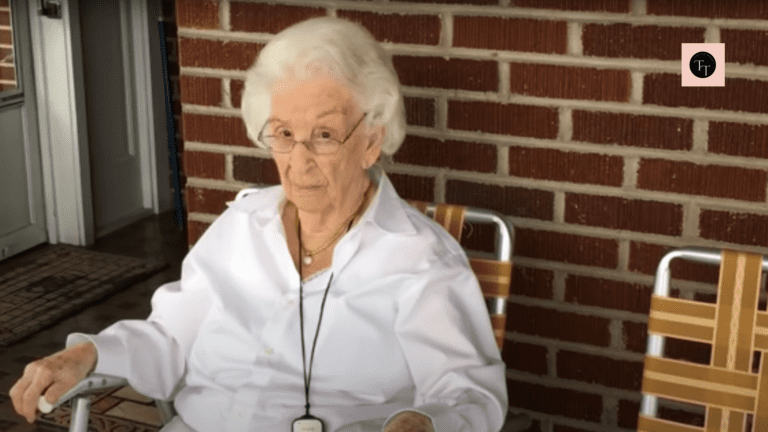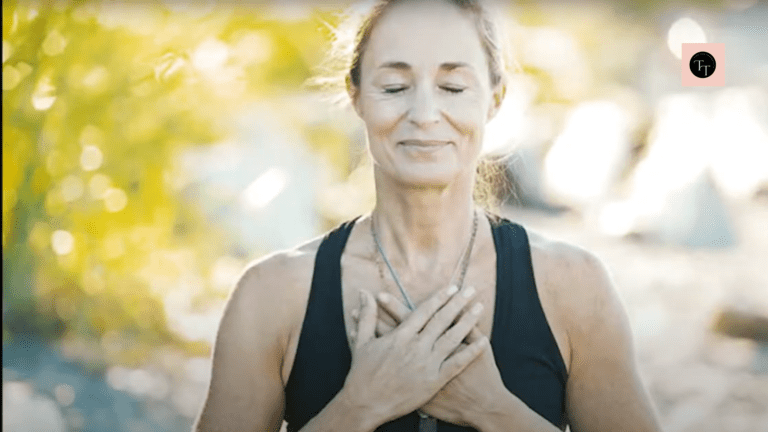8 Practices of Mindfulness and Self-Compassion for the Distressed Mind!
Did you anticipate facing challenges alone? I guess not. But life can be unfair as you age. Chin up! Embrace mindfulness and self-compassion! They will completely transform your life and heal your distressed mind.
It’s natural to feel lost or anxious about the future if you are retired and have an empty nest. It’s the way life is. You can either spend the rest of your days moaning and groaning or face the challenges, with confidence, by practicing mindfulness and self-compassion.
Mindfulness helps you stay focused on the present, eliminating regrets about the past and anxiety about the future. Self-compassion encourages you to treat yourself with kindness, especially during tough times.
When practiced together, mindfulness and self-compassion lead to greater self-awareness and contentment in your senior years. Cultivating mindfulness and self-compassion empowers you to navigate this chapter of life with strength, grace, and inner peace.
What is Mindfulness?
“The present moment is the only time over which we have dominion.” – Thích Nhất Hạnh
Mindfulness is simply being aware of the present moment. It means paying attention to your thoughts, feelings, and surroundings without judgment.
When you practice mindfulness, you notice what’s happening right now. This can help you feel more grounded and connected to your life.
Practicing mindfulness can bring calmness to your mind and heart. It helps reduce stress and anxiety, allowing you to face challenges with a clearer perspective.
By focusing on the present, you can let go of past regrets or worries about the future. This shift can lead to greater happiness and a sense of peace in your daily life.
Exploring Self-Compassion
“You yourself, as much as anybody in the entire universe, deserve your love and affection.” – Buddha
Self-compassion means treating yourself with kindness and understanding, especially during tough times. It’s about recognizing that everyone struggles and you are not alone in your feelings. This gentle approach helps you nurture your emotional health.
Self-compassion has three components.
1. Self-Kindness
Self-kindness encourages you to be gentle with yourself. Instead of criticizing your mistakes, offer yourself words of support. This small shift can make a big difference in how you feel.
2. Common Humanity
Common humanity reminds us that suffering is part of being human. When you realize that others also face challenges, it helps you feel less isolated. You are not alone in your struggles.
3. Mindful Awareness
Mindful awareness involves noticing your thoughts and feelings without judgment. By being aware, you can acknowledge your pain while also allowing it to pass. This practice creates space for healing.
Self-compassion can ease feelings of anxiety and emptiness by promoting a sense of connection with yourself. Embracing self-compassion allows you to accept your emotions without being overwhelmed, helping you find joy even in difficult moments.
Combining Mindfulness and Self-Compassion
Mindfulness and self-compassion work beautifully together. Mindfulness helps you notice your thoughts and feelings without judgment. When you recognize these emotions, self-compassion allows you to respond with kindness instead of criticism.
Together, they create a safe space for healing. Mindfulness helps you stay present, while self-compassion nurtures your heart.
Mindfulness and self-compassion, when practiced together, lead to emotional balance and inner peace in your life. You can navigate life’s challenges with grace and understanding, making each day worth living.
Distressed? Heal Yourself with Mindfulness and Self-Compassion
Feeling distressed in your senior years, by life’s challenges? Here are 8 mindfulness and self-compassion practices to heal your distressed mind:
1. Mindful Deep Breathing
Focus on your breath to calm racing thoughts and ground yourself in the present moment, when the distress seems unbearable. Mindful breathing soothes anxiety and reduces emotional overwhelm.
I suggest you learn Pranayama, a yogic practice of controlled breathing that calms the mind, reduces stress, and improves emotional balance. It fosters relaxation and mental clarity.
Pranayama also improves lung capacity and oxygen circulation. It reduces blood pressure, improves digestion, and increases energy levels.
2. Body Scan Meditation
In Body Scan meditation you mentally scan your body from head to toe, noticing any tension or sensations. The practice reduces stress and anxiety, brings calm and peace, and helps you to be more compassionate to your body and mind.
It is best to practice body scan meditation, before sleeping, but there are no rules. You can practice it anytime you feel distressed and need a peaceful connection to your inner self.
3. Self-Compassion Break
The Self-Compassion Break is a technique to soothe your heart when life feels heavy. You take time to talk to yourself when feeling anxious and distressed. Tell yourself:
- This is a moment of suffering, but I have the resilience to overcome it.
- Suffering is a part of life. I am not alone. Others have had similar or worse sufferings and they have overcome them. So can I.
- Place your hands over your heart, feel the beat, and whisper phrases of self-compassion such as:
- “May I give myself the compassion that I need.”
- “May I accept myself as I am.”
- “May I learn to forgive myself.”
This simple act will bring immediate comfort and emotional stability.
4. Loving-Kindness Meditation (Metta)
Metta meditation involves silently repeating phrases that express unconditional love & kindness sentiments, starting with oneself and gradually extending to loved ones, acquaintances, and even difficult individuals.
You may repeat phrases like “May I be happy, may I be peaceful” extending kindness to yourself, loved ones, and all beings. Another technique is to visualize sending love and compassion outward.
The practice of Loving-Kindness Meditation (Metta) shifts focus away from distress and boosts empathy and connection. It eases emotional pain and suffering.
5. Journaling with Kindness
Start by expressing all your emotions freely on paper, without judgment. Then, review what you’ve written and respond to yourself in a gentle, caring way.
For example, if you’ve written about feeling sad or frustrated, acknowledge those feelings by writing something like, “It’s okay to feel this way, and it’s part of the healing process.”
Journaling with kindness helps to release bottled-up emotions, reduce stress, and provide mental clarity. It can also cultivate self-acceptance, making it a soothing practice that fosters emotional healing over time.
This compassionate inner dialogue helps transform negative self-talk into supportive, caring thoughts.
6. Gratitude Ritual
A gratitude ritual is a special practice where you devote time to reflect on and appreciate the good things in your life. It can be as simple as writing down what you are thankful for or sharing your feelings with a friend.
This is different from just saying “thank you.” While we often express gratitude in passing, a ritual involves a deeper, more intentional focus.
A gratitude ritual allows you to connect with your feelings and recognize the blessings you have been bestowed with. It re-focuses your mind from negative thoughts to positive ones. You can foster a greater sense of happiness and peace, by making gratitude a regular part of your life.
7. Take a Walk in Nature
A long quiet walk in the park or nature is the perfect way to eliminate stress and anxiety. The fresh air, soothing sounds, and connection with nature encourage mindfulness, which brings you into the present moment.
Walking releases cortisol (reduces stress) and endorphins (improves mood). Naturally, walking creates a sense of well-being, making it easier to process emotions and find peaceful resolutions to anxiety.
8. Affirmations of Self-Kindness
Affirmations of Self-Kindness are like gentle whispers to your hearts. They’re positive statements you can repeat to yourself to nurture self-compassion and resilience.
In my article, 101 Daily Affirmations for Positive Thinking, Best Suited for Seniors! I have 101 examples. Check them out and adopt the ones that resonate with you.
Some of my personal “go-to” affirmations for self-compassion and positive thinking are:
- I trust my ability to overcome obstacles with grace.
- I am worthy of love and respect just as I am.
- I am grateful for the person I have become.
- I celebrate the small joys that fill my heart.
- I let go of worries and trust the journey ahead.
In Conclusion
Mindfulness and self-compassion help you reduce stress and anxiety while cultivating a deeper connection with your inner self. Together, they can mitigate your distress to a large degree.
By embracing self-kindness and staying present, you can navigate life’s challenges with grace and resilience.
“Love and compassion are necessities, not luxuries. Without them, humanity cannot survive.” – Dalai Lama






